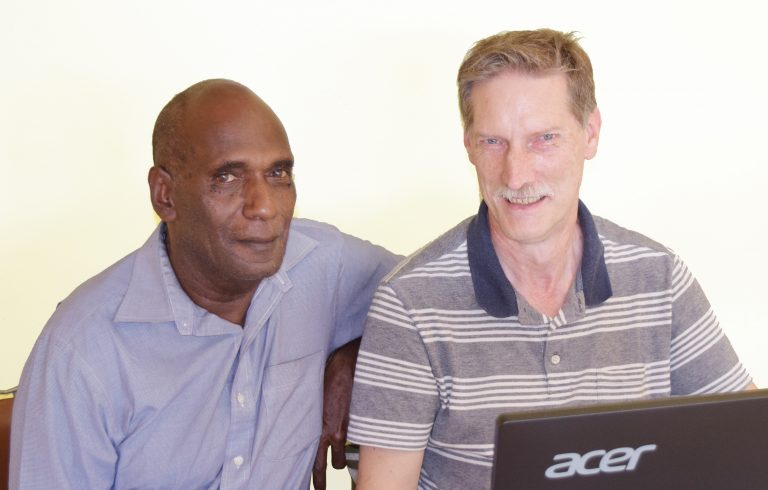Open up the gate
Changes to Scripture publication
In 1991 I was visiting the International Publications Department in Dallas and I had in my possession something that I had not realised was breaking new ground. It was the second edition of the Kriol Holi Baibul from northern Australia (published 1987). Unbeknown to the international administration, this Bible had been laid out on a Macintosh computer in Darwin and the photocopy-ready edition printed on a laser printer at the Darwin Apple Store. It had then been printed and bound in Korea.
With decisions made for a specific local context, some of the universal Scripture printing guidelines were deemed inappropriate by the translation team. We had used a larger font and numerous illustrations, some locally produced. To my surprise, some did not share my joy. Words like quality assurance, precedence, cost and due process were on their lips.
They were the professional gatekeepers for Scripture publications worldwide and this Kriol Baibul had not passed through their gate.
A revolutionary 1980s Macintosh computer and laser printer have started an unstoppable trend of moving the publishing of Scripture from centralised to local control.
Today this revolution is complete. The production of the 2007 Kriol Bible involved Paul Eckert (Bible Society) spending a couple of weeks working with the Kriol translators in Darwin to decide on how and what they wanted in their Bible. Gordon Thompson (SIL typesetter, Alice Springs) took those ideas to produce an exquisite Bible with colour plates, maps and gold-lined pages.
The Kriol Baibul was not only their translation, but also now their publication.
Gordon Thompson has since moved on to be the Pacificwide publications trainer and he has seen this change to local control gain even more traction. Gordon recently went to Vanuatu to train a translation advisor to do typesetting locally.

GORDON THOMPSON WITH PASTOR KORAH
Gordon wrote,
This enabled the wider translation team to gather around and interact with the typesetters as decisions were made about the design and format of their publication. I’m sure this would have resulted in more ownership of the final product.
Changes in technology mean Scripture publication, once the domain of experts in our publishing department in America, is now in the hands of hundreds of local translation teams around the world. The result is an immediate, affordable, quality and locally relevant Scripture publication.
Learn more about the opportunities that digital publishing has created wycliffe.org.au/digital_revolution
This story is from Wycliffe Today – October 2017
Author: Barry Borneman


 Thanks for your patience...
Thanks for your patience...